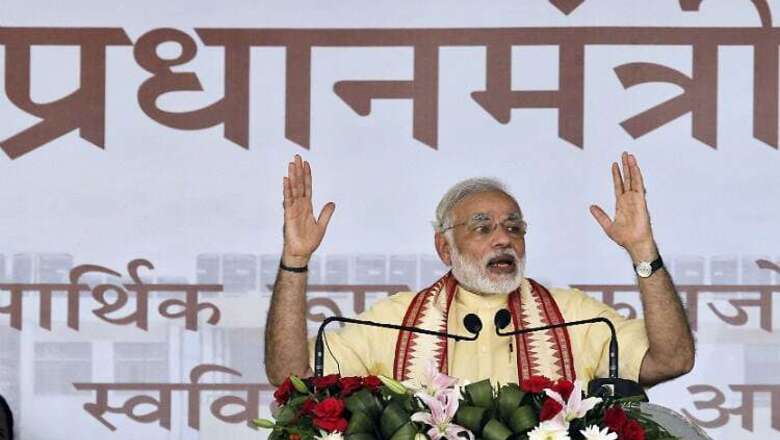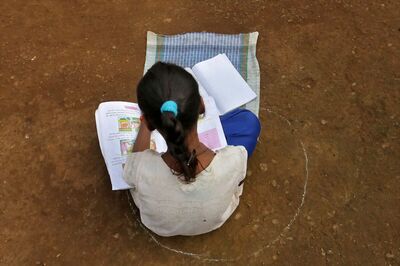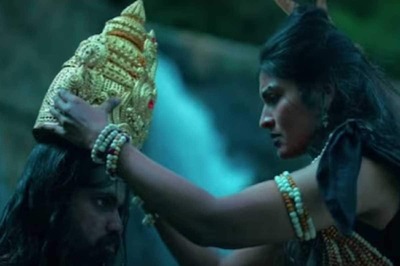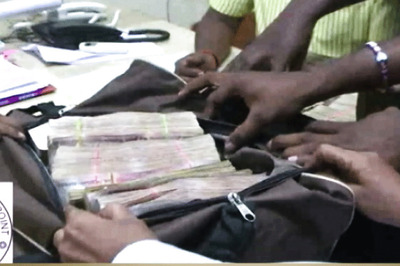
views
It's time for Prime Minister Narendra Modi to blow one more candle on his cake as he turns 65 on Thursday. Celebrations are underway across the country to wish the Prime Minister in new and special ways. Children in a school in Siliguri dressed up as Narendra Modi to wish the PM. In his home state, Gujarat - locals offered over 6000 kg of laddoos to Lord Ganesh to mark the occasion while in Bundelkhand, a huge cloth with messages by schoolchildren wishing Modi on his birthday was unfurled.
In over a year since he took charge as the PM, agreements and disagreements have continued over the leadership abilities of Narendra Modi. However, there is some voice of unison heard when it comes to the oratory skills of the PM. The phrases coined by him and his government since he was appointed as the face of the Bharatiya Janata Party's Lok Sabha poll campaign, have caught the attention of one and all.
As we wish the Prime Minister a happy birthday, here is a look at some of the catchy phrases coined by the Modi government.
Abki baar Modi sarkar: This was the first phrase that was coined by the Bharatiya Janata Party during campaigning for the 2014 Lok Sabha elections. It became viral on the Internet with even jokes being shared on social media. However, both jokes and serious discussions contributed well enough in making the phrase a hit. The country which was largely upset by high rates of inflation, lack of jobs and basic amenities looked at Modi with hope when he reached out to the audience asking them to give him a chance to bring them out of the troublesome times. BJP not just reached out to the people on the internet with just one phrase, it went out full throttle. From Modi ringtones, to Modi wallpapers to Modi merchandise, they made sure to capture the attention of all. Modi even featured in a song that was made during the campaigning "Saugandh mujhe iss mitti ki, mein desh nahi mitne doonga," to reach out to the people. While it got mixed reactions, it certainly was a hit on the social media with numerous shares, likes and downloads.
Swachh Bharat: Within a few months after coming to power, Prime Minister Modi officially launched the Swachh Bharat Abhiyan or the Clean India campaign on October 2, 2014. Modi himself picked up the broom to clean the road at Rajghat flagging off the campaign. The project has been very dear to him and is considered as one of his pet projects. Aiming at engaging the attention of people from all walks of the society, he appealed to all - young and old alike - to wield the broom. He even nominated eminent people to that create a chain to generate awareness of the movement. He nominated 9 people - cricketer Sachin Tendulkar, Congress leader Shashi Tharoor, industrialist Anil Ambani, actors Salman Khan, Priyanka Chopra and Kamal Hassan, Goa Governor Mridula Sinha, Yoga guru Ramdev and the team of TV serial "Tarak Mehta Ka Ulta Chashma" - to take up the challenge.
While some appreciated Modi for taking the move, others even criticised him calling it a photo opportunity. Nominating people and creating a chain was also critisised by the opposition leaders as a move to gather attention and be in the limelight. It was also termed as just an eye-wash since months after the project was launched, not much changes have been seen on the ground.
Beti bachao beti padhao: Battling with the age-old gender inequality in India, Modi launched a 'Beti Bachao Beti Padhao' campaign to encourage people to end female foeticide and give equal opportunity to girls to live life. Launching the scheme in Haryana which is highly infamous for its unequal sex ratio, Modi said, "we do not have the right to kill the girl child. Our Mantra should be 'Beta Beti, Ek Samaan'. According to a report by the Census 2011 a declining trend in Child Sex Ratio (CSR) is seen between 0-6 years with an all time low of 919. India has recorded considerable economic growth in the last decades. However, it has not been translated into improved gender indicators especially related to Sex Ratio and CSR.
Make in India: On 25 September 2014, soon after his first speech at the Red Fort on Independence day, Modi launched 'Make in India' initiative of the government to encourage companies to manufacture their products in India. The scheme has been one of the vital objectives in all his trips across the world. His grand ambitious plans cover sectors like Railways, Automobiles, Chemicals, IT, Pharmaceuticals, Textiles, Aviation, Leather among many others with which he believes that India's economy can grow. His government also claims that these visions are aimed at creating more job opportunities to bring a change in the country's development. One major standpoint that the business community has been facing over decades is the multiple checks and roadblocks which hamper swift business flow. The Modi government has aimed at removing multiple check points to ease the process of business. The campaign is strongly driven by political agenda and has been questioned by the contemporary countries but there is little doubt that if successful, the policies will not only give instant boost to the economy but will also help in generating more employment for the underprivileged and the poor.
Jan-Dhan yojna: With an aim of building an economically stronger nation, Prime Minister Modi in his first speech from the ramparts of the Red Fort announced Pradhan Mantri Jan-Dhan yojna. The new scheme is built with a vision that every family living in India must have a bank account. As announced by Modi, the accounts can be created with zero balance and no minimum balance needs to be maintained to sustain the account. The idea behind the project is that each family in India is a party of the country's economy, so getting enrolled in a bank makes them a part of the vehicle of economy. The scheme also offers a life cover of Rs 30,000 per family along with an accidental cover of Rs 1 lakh. A RuPay debit card is also offered with the account to withdraw money.
The scheme launched on August 28, however, attracted criticism from experts and opposition parties alike over its ideological standpoint as well as for its effectiveness. The major problem with the scheme is that most of the accounts are created with a zero balance ignoring the cost to maintain the accounts. As of January 31, 2015, the government in a report claimed that 1254.73 accounts were created out of which 844.73 lakh were opened with zero balance.




















Comments
0 comment